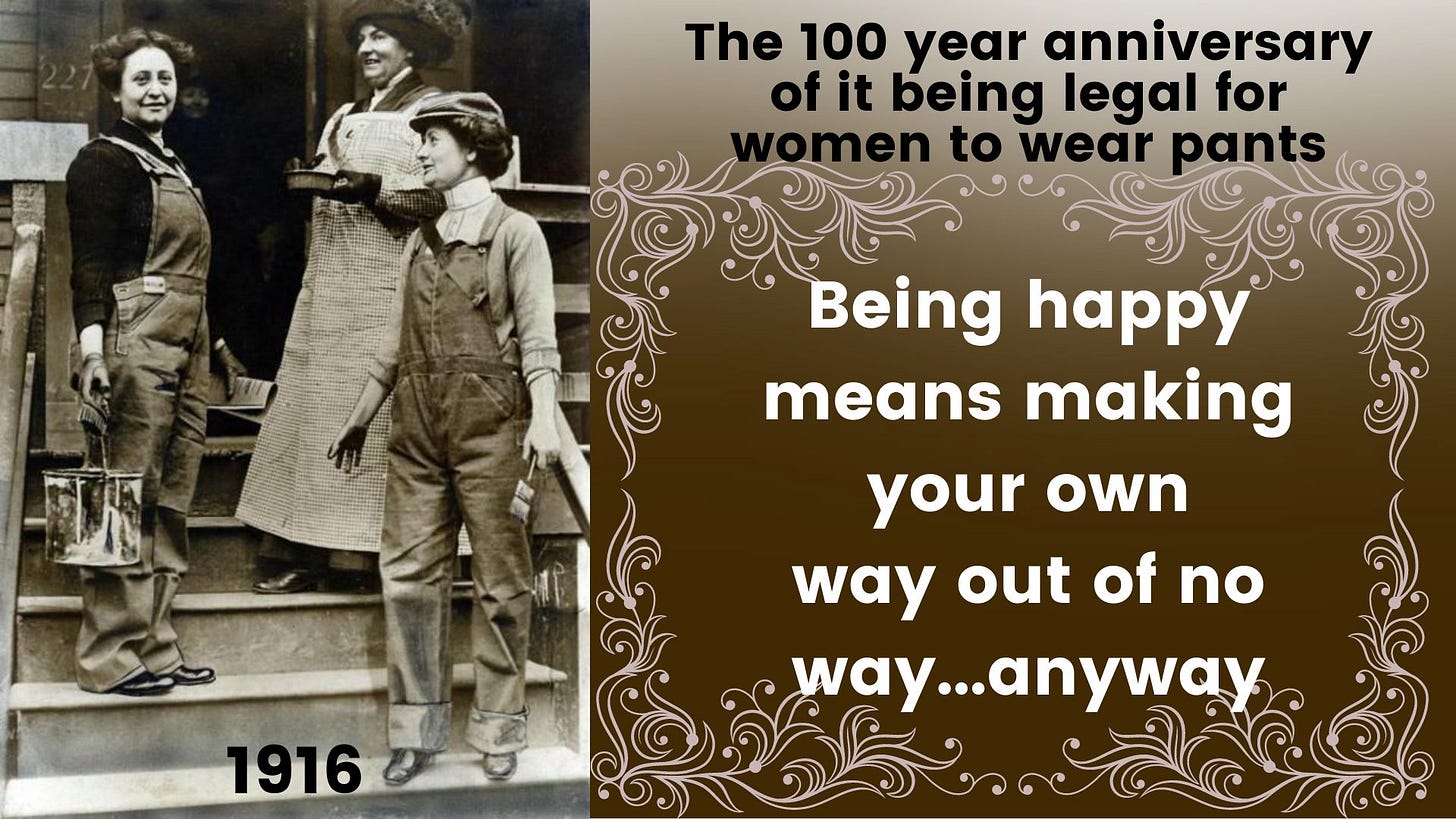Dear Ones,
I think a lot about what women have experienced in our lives and the evolution of our rights. I am grateful to be raised by women who were laborers, carpenters, seamstresses, potters…even plumbers.
My mom Caron used to brag that her mother Eden could plumb a whole house and shoe a horse lol. She could also fix most machines, made our clothing and could feed us from her garden. I think about how the brain development of our ancestors and grandparents would be so different than it is today, simply based on the way we use to labor. I love to labor and use my body and I know it is because of what they taught me - to use my hands and my body.
I do not know the origins of this photo but I read that they are in men’s overalls - I have a pair like those myself, and that they are Dutch women.
Today’s episode is just a teensy story about remembering to truly hold the vision and how Intentional Creativity can help us do just that.
Shiloh Sophia
Who wears the pants: On May 28th, 1923, the US Attorney General declared that it was legal for women to wear trousers anywhere. Women dressed as men for many reasons: practical necessity, fighting in wars, independence, safety from rape and murder while traveling, orientation or identity, etc. Legal restrictions and punishments were necessary because, “by wearing pants, women appropriated male dress, and by association, male privilege, and power.” Punishment ranged from burning at the stake to prison time and using sexist character assassination: for wearing Turkish trousers, Frances Wright (1795-1852) was called “The Great Red Harlot of Infidelity, The Whore of Babylon, The Voluptuous Preacher of Licentiousness, The Priestess of Beelzebub, Miss Epicene Wright,” etc. Dress codes were used as a loophole: female senators were banned from wearing trousers on the senate floor until 1993. (Fischer, Gayle V. ""Pantalets" and "Turkish Trousers": Designing Freedom in the Mid-Nineteenth-Century United States." Feminist Studies 23.1 (1997): 111. ProQuest. Web. 10 Apr. 2023) LINK
“Good mental health and clear thinking depend upon our ability to store and manipulate thoughts on a sort of “mental sketch pad.” In a new study, Yale researchers describe the molecular basis of this ability and describe how a breakdown of the system contributes to diseases such as schizophrenia and Alzheimer’s disease.”













Share this post